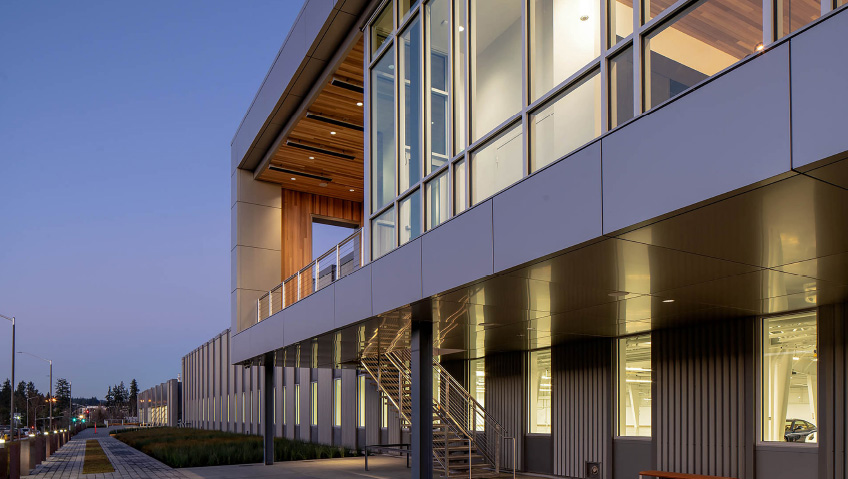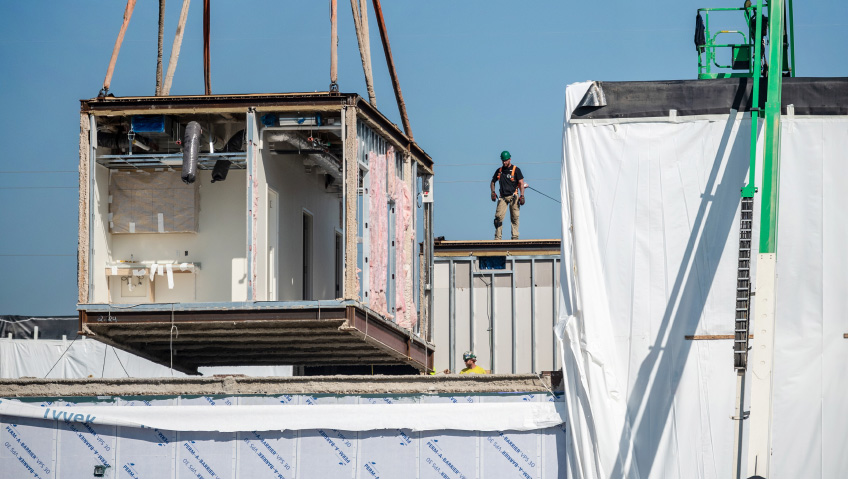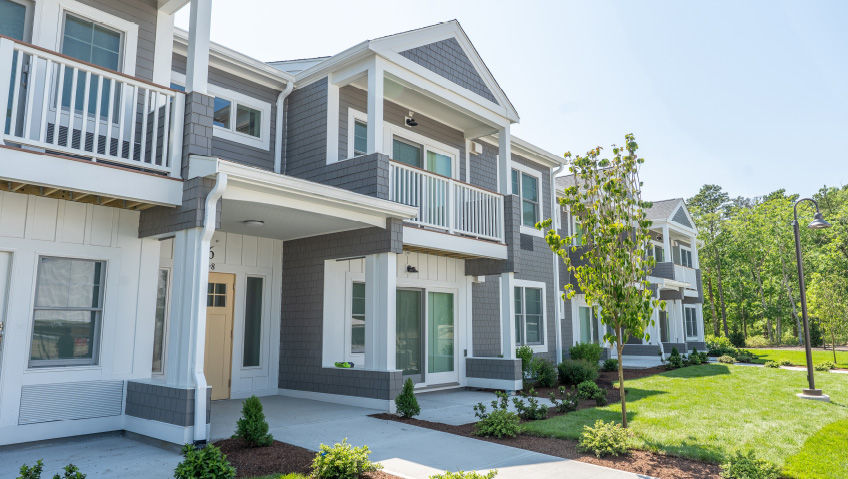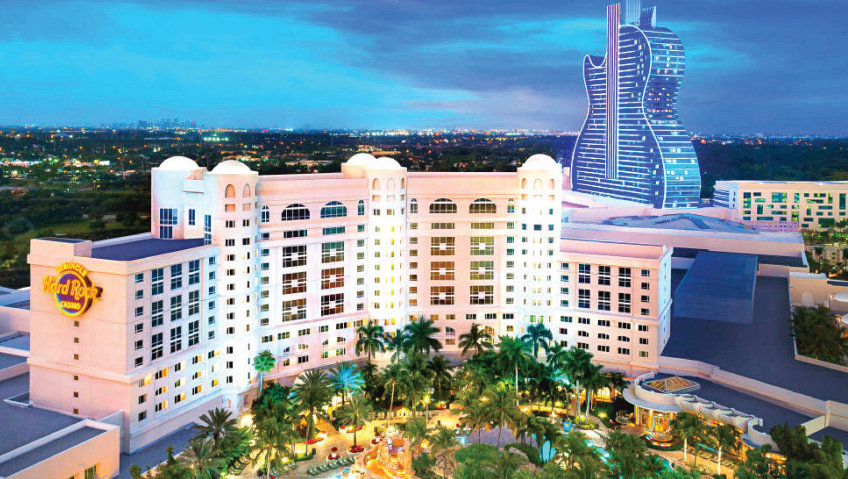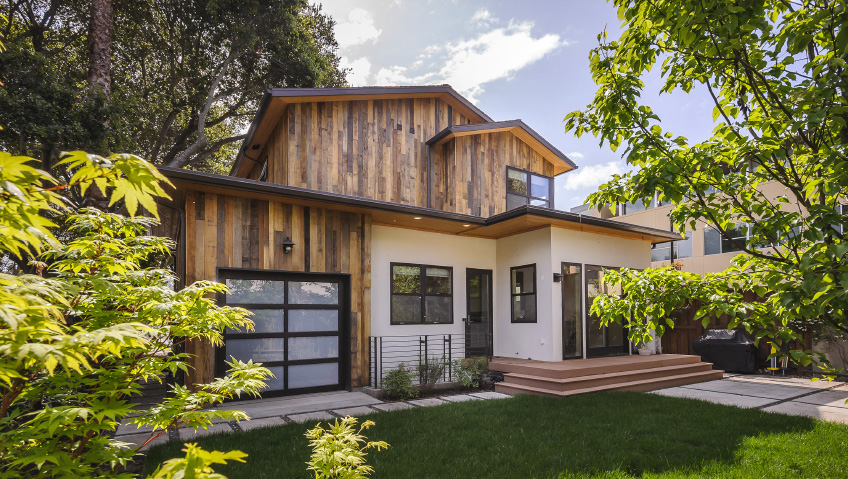Synergy was founded in April 1990, a time when the word “synergy” wasn’t the buzzword it is today. The name was chosen with intention and purpose, reflecting the vision of the owners, Pam and Larry Stewart, who were partners in a different general contracting firm. They saw an industry riddled with contention and adversarial relationships—general contractors, architects, and developers all working in silos, hoarding information. The atmosphere was anything but collaborative, and the process, rather than being enjoyable, was often fraught with tension.
Pam and Larry recognized an opportunity in this environment. They asked themselves a simple yet profound question: “What if we could all work collaboratively, transparently, and with trust?” They envisioned a process that was not just efficient but enjoyable, where the sum of the parts truly was greater than the whole. And so, Synergy was born, a company rooted in the belief that when people work together, the possibilities are endless.
The team: the heart and soul of Synergy
Today, Synergy has grown to about 75 full-time employees, each one an integral part of the family-owned and operated business. As the company has expanded, it has remained focused on its mission, vision, and core values. These words are more than just statements; they’re the guiding principles that influence everything Synergy does—from interviewing and hiring new team members to the way it approaches every project.
Scaling a company without losing sight of its culture is no easy feat, but it’s something Synergy has managed to do by keeping its core values at the forefront. These values aren’t merely talked about; they are lived and breathed by everyone in the company, guiding the team’s daily interactions, communication, and how it handles challenges. “It’s this shared set of values that makes our team so great. After all, the team is the company,” says Justin Stewart, the CEO of Synergy.
At Synergy, success isn’t just about the bottom line; it’s about the overall success of every project it undertakes. This means prioritizing the success of direct clients, but also that of subcontractors and all stakeholders involved in the project. The Synergy team doesn’t just look at what’s best for the individual contributor but also considers what’s best for the project. It’s about delivering projects efficiently and ensuring that everyone involved has a positive experience.
This holistic approach to project management is a key part of the company’s philosophy. By focusing on the big picture, Synergy can deliver results that are efficient and exceed client expectations.
Modular construction: revolutionizing the industry
When Synergy was founded 34 years ago, the company primarily focused on affordable housing, but over the years has built every type of commercial project you can imagine, from light industrial to healthcare, education, banks, retail, and public facilities. However, it was affordable housing that drove Synergy to explore modular construction.
About a decade ago, the industry was facing significant labor constraints and supply chain challenges. Affordable housing clients were feeling the pinch, and as part of a mission to solve problems for clients, Synergy began searching for solutions. That’s when the team discovered volumetric modular construction, building entire rooms or buildings in a factory setting and then assembling them onsite like LEGO® bricks. This approach offered a level of predictability that was previously unattainable.
Since then, modular construction has become a cornerstone of the business. It allows Synergy to bring real certainty to projects, knowing exactly what to build, how much it will cost, and when it will be completed. This has been especially valuable in addressing the affordable housing crisis, where every dollar saved can make a significant impact.
Synergy has also expanded its toolkit to include other modern methods of construction (MMC), such as panelization, subassemblies, mass timber, and mass timber modular systems. Each of these tools offers unique benefits for different types of projects.
Synergy was originally headquartered in the Pacific Northwest, primarily serving Washington, Idaho, and Oregon. About 15 years ago, the company expanded into Arizona to support its existing clients, and with offsite and modular construction operations based in Austin, Texas, it extended its reach even further. Today, the firm operates in Washington, Oregon, California, Arizona, Nevada, Montana, and Texas, and is now pursuing projects nationwide. Its focus has been on scaling systems to provide services beyond the company’s previous geographic boundaries, and the team is excited to continue expanding its reach in the coming years.
When it comes to modular and prefabrication projects, Synergy believes in taking responsibility for the entire process from start to finish. Many companies focus on just one part of the project, but without a holistic approach, this can lead to finger-pointing, scope gaps, and unexpected issues. At Synergy, the entire design team is integrated—from permitting, to construction both onsite and off, to occupancy and beyond. Whether it’s serving as a general contractor under a guaranteed maximum price (GMP) contract or as a full design-builder, the company takes responsibility for the overall success of the project. It’s about ensuring that everything goes smoothly, with no surprises along the way.
Harnessing technology: innovation with purpose
Innovation is one of the core values at Synergy, but it’s not just about chasing the latest technology for its own sake. The team believes in a structured approach to technology, ensuring that any new tools adopted are thoroughly tested and proven before being implemented across projects. This approach has allowed the firm to remain at the leading edge of the industry while maintaining consistency and accountability across its operations. By focusing on technology that delivers real results, Synergy has been able to enhance efficiency and make every project a success.
“One of our most recent successes,” Stewart shares, “is the completion of a full modular affordable housing project in Seattle. Despite being a challenging site with significant site development work, the team was able to deliver the project in just over 14 months, with a hard cost of $265,000 per unit. This is a testament to the systems and processes developed over the years and the dedication of the team.
Synergy’s efforts have also been recognized with numerous awards, including nine National Excellence in Construction awards from the Associated Builders and Contractors (ABC) and accolades from the Modular Building Institute (MBI). But for this team, the biggest success is always delivering for its clients—whether it’s completing a project under budget or ahead of schedule, the firm is committed to exceeding expectations every time.
In support of the broader industry, CEO Justin Stewart serves as Co-chair of the Offsite Construction Task Force for the Housing Development Consortium, where Synergy creates educational materials to help contractors, affordable housing developers, and architects deliver projects more efficiently. The task force is also working to educate mechanical, electrical, and plumbing (MEP) contractors on how to price and staff modular projects more effectively, addressing one of the industry’s biggest challenges.
Growth and development: a commitment to continuous improvement
Amidst market challenges, Synergy has continued to grow at an impressive pace. Growth is one of the core vision statements for the company as it believes in attracting the best and brightest leaders. Personal development is another core value, and the company is committed to providing opportunities for everyone in the organization to grow both professionally and personally.
Indeed, Synergy itself has grown by 150 percent in top-line revenue over the past three years, and it is just getting started. Employees know that there is no cap on their growth at Synergy, no limits to what they can achieve. Personal development is supported through education, training, and goal setting, ensuring that everyone has the tools they need to succeed.
Industry evolution: embracing change
The modular construction industry as a whole is finally gaining mainstream adoption, but with that comes growing pains. The legal agreements, financial instruments, and general processes that have long been standard in the construction industry aren’t always well-suited for offsite and modular construction. As the industry evolves, Synergy is working to create new systems and processes that better align with the unique needs of modular projects.
This has involved everything from rewriting legal agreements to working with financial institutions to develop new lending and equity agreements. The company is also educating developers on how to adapt their site selection, underwriting, and massing processes for modular construction. As these changes take hold, Synergy is seeing faster adoption and greater efficiency in the industry, a trend it expects to continue in the coming years.
The company’s plans for the future are simple: continue along its current path, collaborate with others in the industry, and share best practices to deliver construction in a more efficient and modern manner. The goal isn’t just to increase the adoption of modular construction; it’s to deliver higher quality, more sustainable projects in a way that benefits everyone involved.
The firm is committed to solving the affordable housing crisis, and housing will always be at the core of how it approaches its work. But the team is also using modular construction to deliver hotels, educational facilities, healthcare buildings, and more. As it looks to the future, it will continue to seek out the best processes and systems to achieve its goals.
Synergy has proven that modular construction can deliver significant cost savings and efficiencies and is committed to spreading that message far and wide. This isn’t just a ‘someday’ solution—it’s happening right now, and the impact is real.

